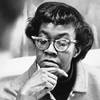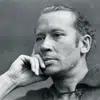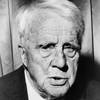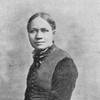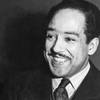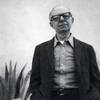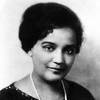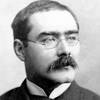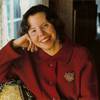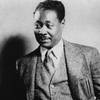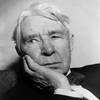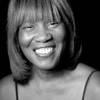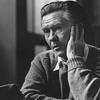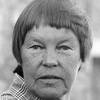Filter By
It's Just That I'm Not Really Into Politics
violence begets more / violence / or so I've been told / but all of this country's skyscrapers / are still standing / despite the blood / that builds a boat underneath the tongue / after speaking its name / violence begets / more photo opportunities / at the feet of a burning / temple / I show up to the resistance / and someone hands me a rose / the color of surrender / violence begets thirst / a new thing in need / of clean water / once / towards the black / and spotted sky / I raised a fist / inside of a glove / sewn in a country / torn apart by our bombs / I purchased the gloves in a store / after midnight / from a cashier who wore a picture / of her daughter on her chest / and looked as though she might have been crying / before I arrived / violence begets a hunger for warmth / at all costs / I sit in a running car / and count all of the things / yet to be swallowed / by the horned ghosts of empire / If you make your own prison / you can find your own map / to freedom / the smoke from all our engines / is beckoning the sun / close / the oceans are rising / to the height of a child / sitting on a mother's shoulders / pointing to the horizon with a single / trembling / finger
Excerpt from "America"
Day after day, I weep on the phone, saying Even the classroom is a prison
And still my father insists But it is good to become an American
And so I cement my semantics
I practice my pronunciations, I learn to say This country
After saying I love
I rinse my aquiline face, wring my language for fear
I feared what had happened in your forest, the words that pursued the soft silk of spiders
The verbs were naturalize, charge, reside
The nouns were clematis, alien, hibiscus
America I arrived to inhabit the realm of your language
I came to worry your words
What you offered is a vintage apartment, an audience for poems
Pills the color of dusk
To swallow so as not to collapse when I read the poem about my uncle
The reading of which I owe him, to everyone who antecedes me
America the scale says not thin enough
America my lawyer suggests to keep quiet about certain things
About you and me
So I write in my notebook your name, I write Country of
Cowboys and Fame
America I have no cowboy
And I have no fame
All I gather is the scratching of ink against paper, the laugh of a skeptic
There are nights we hear something likened to fireworks lighting up the humid campus
And my students cheer, they laugh Welcome to America
Later in the empty corridor, the disembodied voice of my uncle
Saying The classroom is not a prison
Saying Go, go home now and so I go
Past vetiver and cedar, past eucalyptus declaring the shoreline
Until I shiver on the soft-stoned coast on which my father once lay
And I proclaim what he did, I say This land is my fate
America who am I becoming here with you
If I wander the same as without you, barely visible amid your indigenous trees
Things You May Find Hidden in My Ear
For Alicia M. Quesnel, MD
i
When you open my ear, touch it
gently.
My mother’s voice lingers somewhere inside.
Her voice is the echo that helps recover my equilibrium
when I feel dizzy during my attentiveness.
You may encounter songs in Arabic,
poems in English I recite to myself,
or a song I chant to the chirping birds in our backyard.
When you stitch the cut, don’t forget to put all these back in my ear.
Put them back in order as you would do with books on your shelf.
ii
The drone’s buzzing sound,
the roar of an F-16,
the screams of bombs falling on houses,
on fields, and on bodies,
of rockets flying away—
rid my small ear canal of them all.
Spray the perfume of your smiles on the incision.
Inject the song of life into my veins to wake me up.
Gently beat the drum so my mind may dance with yours,
my doctor, day and night.
A Daughter Named After Nina
voice of incoming 2 express train
pray herself altar
contort mouth shotgun:
sawed off a saw
soften tongue songbird
hands mosaicked mirrors
donning skin like battle gear
dawning skin like evening gown
this name pinned on her shoulders;
a heavy mantle. an incantation.
Truth is I would like to escape myself
Truth is I would like to escape myself.
Detach my body from my skin,
peel it layer by layer to uncover
beneath the surface of petals
and thorns piled up year after year,
who I am and who I want to be.
I want to be the flower that grows
in dirt, the feather that flies free between
the cracks of fences. A wise woman
once told me, don’t worry about you,
worry about who you could be.
I want to be the woman who sits
on a desk and writes pieces of oceans,
rivers on a white space in a place
where imagination has no border.
If They Should Come For Us
these are my people & I find
them on the street & shadow
through any wild all wild
my people my people
a dance of strangers in my blood
the old woman’s sari dissolving to wind
bindi a new moon on her forehead
I claim her my kin & sew
the star of her to my breast
the toddler dangling from stroller
hair a fountain of dandelion seed
at the bakery I claim them too
the Sikh uncle at the airport
who apologizes for the pat
down the Muslim man who abandons
his car at the traffic light drops
to his knees at the call of the Azan
& the Muslim man who drinks
good whiskey at the start of maghrib
the lone khala at the park
pairing her kurta with crocs
my people my people I can’t be lost
when I see you my compass
is brown & gold & blood
my compass a Muslim teenager
snapback & high-tops gracing
the subway platform
Mashallah I claim them all
my country is made
in my people’s image
if they come for you they
come for me too in the dead
of winter a flock of
aunties step out on the sand
their dupattas turn to ocean
a colony of uncles grind their palms
& a thousand jasmines bell the air
my people I follow you like constellations
we hear glass smashing the street
& the nights opening dark
our names this country’s wood
for the fire my people my people
the long years we’ve survived the long
years yet to come I see you map
my sky the light your lantern long
ahead & I follow I follow
The World Has Need of You
everything here
seems to need us
Rainer Maria Rilke
I can hardly imagine it
as I walk to the lighthouse, feeling the ancient
prayer of my arms swinging
in counterpoint to my feet.
Here I am, suspended
between the sidewalk and twilight,
the sky dimming so fast it seems alive.
What if you felt the invisible
tug between you and everything?
A boy on a bicycle rides by,
his white shirt open, flaring
behind him like wings.
It’s a hard time to be human. We know too much
and too little. Does the breeze need us?
The cliffs? The gulls?
If you’ve managed to do one good thing,
the ocean doesn’t care.
But when Newton’s apple fell toward the earth,
the earth, ever so slightly, fell
toward the apple as well.
Como Tú / Like You / Like Me
{for the D.A.C.A DREAMers and all our nation's immigrants}
. . . my veins don’t end in me
but in the unanimous blood
of those who struggle for life . . .
. . . mis venas no terminan en mí
sino en la sange unánime
de los que luchan por la vida . . .
—Roque Dalton, Como tú
Como tú, I question history’s blur in my eyes
each time I face a mirror. Like a mirror, I gaze
into my palm a wrinkled map I still can’t read,
my lifeline an unnamed road I can’t find, can’t
trace back to the fork in my parents’ trek
that cradled me here. Como tú, I woke up to
this dream of a country I didn’t choose, that
didn’t choose me—trapped in the nightmare
of its hateful glares. Como tú, I’m also from
the lakes and farms, waterfalls and prairies
of another country I can’t fully claim either.
Como tú, I am either a mirage living among
these faces and streets that raised me here,
or I’m nothing, a memory forgotten by all
I was taken from and can’t return to again.
Like memory, at times I wish I could erase
the music of my name in Spanish, at times
I cherish it, and despise my other syllables
clashing in English. Como tú, I want to speak
of myself in two languages at once. Despite
my tongues, no word defines me. Like words,
I read my footprints like my past, erased by
waves of circumstance, my future uncertain
as wind. Like the wind, como tú, I carry songs,
howls, whispers, thunder’s growl. Like thunder,
I’m a foreign-borne cloud that’s drifted here,
I’m lightning, and the balm of rain. Como tú,
our blood rains for the dirty thirst of this land.
Like thirst, like hunger, we ache with the need
to save ourselves, and our country from itself.
A Boy Can Wear a Dress
A boy can wear a dress
by cliff or by
creek, by God or by
dark in the caul of the devil.
A boy can wear a dress
bought with a tin-
can full of cherries on the
day of his daddy’s dying.
A boy can weep in his dress—
by boat or by plane, he
can sleep in his dress,
dance in his dress, make
eyes in his dress at the
flame at the hotel bar.
[ ] it all to graceland,
how stunning he looks
in his blue cotton dress,
just stunning! Nothing can
keep him from
losing our minds, sluicing
my heart in that way he does.
Nothing can keep him.
On the walk to his daddy’s wake,
persons of rank may
question his dress,
raise their brows at his dress,
so he twirls and twirls
till his dress is its own
unaddressed question, un-
veiling the reasons he
wakes every morning, like an
x-ray for colors beneath
your colors, your
zygote soul, your naked twirl—
my dreams, my works, must wait till after hell
I hold my honey and I store my bread
In little jars and cabinets of my will.
I label clearly, and each latch and lid
I bid, Be firm till I return from hell.
I am very hungry. I am incomplete.
And none can tell when I may dine again.
No man can give me any word but Wait,
The puny light. I keep eyes pointed in;
Hoping that, when the devil days of my hurt
Drag out to their last dregs and I resume
On such legs as are left me, in such heart
As I can manage, remember to go home,
My taste will not have turned insensitive
To honey and bread old purity could love.
We Real Cool
The Pool Players.
Seven at the Golden Shovel.
We real cool. We
Left school. We
Lurk late. We
Strike straight. We
Sing sin. We
Thin gin. We
Jazz June. We
Die soon.
And Later . . .
I take my kaleidoscope off the shelf,
look through the little hole at the end
of the cardboard tube;
I turn and turn and turn and turn,
letting the crystals shift into strange
and beautiful patterns, letting the pieces fall
wherever they will.
Love Song for Love Songs
A golden age of love songs and we still
can't get it right. Does your kiss really taste
like butter cream? To me, the moon's bright face
was neither like a pizza pie nor full;
the Beguine began, but my eyelid twitched.
"No more I love you's," someone else assured
us, pouring out her heart, in love (of course)—
what bothers me the most is that high-pitched,
undone whine of "Why am I so alone?"
Such rueful misery is closer to
the truth, but once you turn the lamp down low,
you must admit that he is still the one,
and baby, baby he makes you so dumb
you sing in the shower at the top of your lungs.
My Father. A Tree.
Today, longing for my father,
I saw a solitary bleached owl skim
the dark grasses. It swept so low
to the ground it might have buried itself.
I did not know my father so how could I
be lonely for that guardian?
When I was a newborn, I didn’t let
my father hold me. I cried in his presence
till my mother came. My father would shrug,
lean into his high backed chair, to read the paper,
to smoke his pipe while he heard his wife
sing to his only daughter.
In the woods, I summon him
and my eyes fool me as a dark haired
jay shifts a twig, or a stone rolls
into the creek. I think I hear his footsteps
on the path, but it is only the oak
hip twitching to the afternoon’s cold wind.
When I was born, he must have felt
the rupture in his chest, dark matter funneling
through his veins, and he must have known
he would not be here for the rest but he ushered
me into that brightly lit room, the earth
with all its lumen.
Father, I know you are here,
the only place you must be,
where the heavy branches
lean into bright air.
I put down my sack to eat everything
I have carried with me. When I am done,
the ants come swarming in to take
the last of it, to cleanse the earth
of abundance and discard.
Walking in these woods, I believe
that tall shadows and shifts of light
mean that something is at work beyond me.
Midway home and the redwood
are letting go their furious scent,
where you are the tree left standing
and I am this frozen salt flat,
hemisphere of crushed snow.
Summer
You are the ice cream sandwich connoisseur of your generation.
Blessed are your floral shorteralls, your deeply pink fanny pack with travel-size lint roller just in case.
Level of splendiferous in your outfit: 200.
Types of invisible pain stemming from adolescent disasters in classrooms, locker rooms, & quite often Toyota Camrys: at least 10,000.
You are not a jigglypuff, not yet a wigglytuff.
Reporters & fathers call your generation “the worst.”
Which really means “queer kids who could go online & learn that queer doesn’t have to mean disaster.”
Or dead.
Instead, queer means, splendiferously, you.
& you means someone who knows that common flavors for ice cream sandwiches in Singapore include red bean, yam, & honeydew.
Your powers are great, are growing.
One day you will create an online personality quiz that also freshens the breath.
The next day you will tell your father, You were wrong to say that I had to change.
To make me promise I would. To make me promise.
& promise.
Choi Jeong Min
for my parents, Choi Inyeong & Nam Songeun
in the first grade i asked my mother permission
to go by frances at school. at seven years old,
i already knew the exhaustion of hearing my name
butchered by hammerhead tongues. already knew
to let my salty [ ] name drag behind me
in the sand, safely out of sight. in fourth grade
i wanted to be a writer & worried
about how to escape my surname–—choi
is nothing if not Korean, if not garlic breath,
if not seaweed & sesame & food stamps
during the lean years—could I go by f.j.c? could i be
paper thin & raceless? dust jacket & coffee stain,
boneless rumor smoldering behind the curtain
& speaking through an ink-stained puppet?
my father ran through all his possible rechristenings—
ian, isaac, ivan—& we laughed at each one,
knowing his accent would always give him away.
you can hear the pride in my mother’s voice
when she answers the phone this is grace. & it is
some kind of strange grace she’s spun herself,
some lightning made of chainmail. grace is not
her pseudonym, though everyone in my family is a poet.
these are the shields for the names we speak in the dark
to remember our darkness. savage death rites
we still practice in the new world. myths we whisper
to each other to keep warm. my Korean name
is the star my mother cooks into the jjigae
to follow home when i am lost, which is always
in this gray country, this violent foster home
whose streets are paved with shame, this factory yard
riddled with bullies ready to steal your skin
& sell it back to your mother for profit,
land where they stuff our throats with soil
& accuse us of gluttony when we learn to swallow it.
i confess. i am greedy. i think i deserve to be seen
for what i am: a boundless, burning wick.
a minor chord. i confess: if someone has looked
at my crooked spine and called it elmwood,
i’ve accepted. If someone has loved me more
for my [ ] name, for my saint name,
for my good vocabulary & bad joints,
i’ve welcomed them into this house.
I’ve cooked them each a meal with a star singing
at the bottom of the bowl, a secret ingredient
to follow home when we are lost:
sunflower oil, blood sausage, a name
given by a dead grandfather who eventually
forgot everything he’d touched. i promise:
i’ll never stop stealing back what’s mine.
i promise: i won’t forget again.
The Way Words Echo in Our Heads
I wish we could hear them just once,
instead of over and over.
One day, tired, I sat down on the couch
just to listen to the ringing in my ears.
My eyes are so deep-set in my head
it makes it hard to see
past the memory of lost glamour,
being born too late, living in the shadow
of a beautiful downtown turned into
a ghost town, a hollowed hulk,
and how that itself now turns into
a memory of treasures,
how when something taken for granted
is suddenly over, the pause when you take stock
and realize you’ll never have as much,
that change is always a lessening,
the wall effect, you can’t see what’s next
even though it’s supposedly obvious.
I don’t know what to say about that,
I mean, I’m just barely
poem in praise of menstruation
if there is a river
more beautiful than this
bright as the blood
red edge of the moon if
there is a river
more faithful than this
returning each month
to the same delta if there
is a river
braver than this
coming and coming in a surge
of passion, of pain if there is
a river
more ancient than this
daughter of eve
mother of cain and of abel if there is in
the universe such a river if
there is some where water
more powerful than this wild
water
pray that it flows also
through animals
beautiful and faithful and ancient
and female and brave
Oil & Steel
My father lived in a dirty dish mausoleum,
watching a portable black-and-white television,
reading the Encyclopedia Britannica,
which he preferred to Modern Fiction.
One by one, his schnauzers died of liver disease,
except the one that guarded his corpse
found holding a tumbler of Bushmills.
"Dead is dead," he would say, an anti-preacher.
I took a plaid shirt from the bedroom closet
and some motor oil—my inheritance.
Once, I saw him weep in a courtroom—
neglected, needing nursing—this man who never showed
me much affection but gave me a knack
for solitude, which has been mostly useful.
Introduction to Poetry
I ask them to take a poem
and hold it up to the light
like a color slide
or press an ear against its hive.
I say drop a mouse into a poem
and watch him probe his way out,
or walk inside the poem’s room
and feel the walls for a light switch.
I want them to waterski
across the surface of a poem
waving at the author’s name on the shore.
But all they want to do
is tie the poem to a chair with rope
and torture a confession out of it.
They begin beating it with a hose
to find out what it really means.
A Body’s Universe of Big Bangs
A body must remind itself
to keep alive, continually,
throughout the day.
Even at night while sleeping,
proteins, either messenger, builder,
or destroyer, keeps busy
transforming itself or other substances.
Scientists call these reactions
—to change their innate structure,
dictated by DNA—cellular frustration,
a cotton-cloud nomenclature for crusade,
combat, warfare, aid, unification,
scaffold, or sustain.
Even while the body sleeps, a jaw slackened
into an open dream, inside is the drama
of the body’s own substances meeting
one another, stealing elements,
being changed elementally,
altered by a new story
called chemical reaction.
A building and demolishment,
creating or undoing,
the body can find movement,
functioning organs, resists illness—
or doesn’t. Look inside every living being
and find this narrative of resistance,
the live feed of being resisted.
The infant clasping her fist
or the 98-year-old releasing
hers. This is how it should be,
we think, a long story carried out
to a soft conclusion. In reality,
little deaths hover and nibble,
little births opening mouths
and bodies the site of stories
and the tales given to us, and retold, retold,
never altered, and the ones forgotten,
changed, unremembered
until this place is made of only
ourselves. Our own small dictators,
peacemakers, architects, artists.
A derelict cottage,
a monumental church
struck in gold, an artist’s studio
layered with paints and cut paper,
knives and large canvas—
the site the only place
containing our best holy song:
I will live. I will live. I will keep living.
I don't know what I want to say
I don't know what I want to say, but, to try to say something, I think I want to try to think. I want to try to see what I think. I think trying is a big part of it, I think thinking is a big part of it, and I think wanting is a big part of it, but saying it is difficult, and I find saying trying and nearly always wanting. I want what I want to say to go without saying.
[i carry your heart with me(i carry it in]
i carry your heart with me(i carry it in
my heart)i am never without it(anywhere
i go you go,my dear;and whatever is done
by only me is your doing,my darling)
i fear
no fate(for you are my fate,my sweet)i want
no world(for beautiful you are my world,my true)
and it’s you are whatever a moon has always meant
and whatever a sun will always sing is you
here is the deepest secret nobody knows
(here is the root of the root and the bud of the bud
and the sky of the sky of a tree called life;which grows
higher than soul can hope or mind can hide)
and this is the wonder that's keeping the stars apart
i carry your heart(i carry it in my heart)
Profile
You see me swagger to a stop
at the crosswalk, chin bobbing on
the currents of my playlist, and the Nike
Swoosh on my sleeveless says
I hold my shape after washing.
I look upstreet, presenting you
the question curving along my cheek.
What a nice man you’re thinking,
his Afro is nonthreatening
like a light bulb invented by Thomas Edison.
You’re having ideas, right? Weighing
myths and elongating for answers.
I’m walking your way, broad as day,
and you have to choose. Do
you relax your shoulders and step
into the street or clench your toes
and face your faith in the human
race: all men are created
sequals, every black
man is not a syllable.
Forever – is composed of Nows —
Forever – is composed of Nows –
‘Tis not a different time –
Except for Infiniteness –
And Latitude of Home –
From this – experienced Here –
Remove the Dates – to These –
Let Months dissolve in further Months –
And Years – exhale in Years –
Without Debate – or Pause –
Or Celebrated Days –
No different Our Years would be
From Anno Dominies –
Wild nights - Wild nights!
Wild nights - Wild nights!
Were I with thee
Wild nights should be
Our luxury!
Futile - the winds -
To a Heart in port -
Done with the Compass -
Done with the Chart!
Rowing in Eden -
Ah - the Sea!
Might I but moor - tonight -
In thee!
The Racist Bone
I know this is a real thing, because
When I was a kid, my big sister took me
To the Capitol Theater, in my hometown
Of Rochester, NY,
And there was a movie that afternoon,
The Tingler, which starred Vincent Price,
And what I remember best about the film
Was that it was about this extra, insect-like gland, that
We all appeared to have been born with,
But nobody but sci-fi movie scientists knew about.
If it wasn’t fed properly, it would crawl up
Your leg, and choke you to death with its claws!
Your only hope was if you saw it coming, and knew
What it was, you could scream—loud.
Which we did, when it crawled across the screen.
Then the lights blacked out, and Vincent Price
Shouted it had skittered off the screen, hungry—which it hadn’t;
The Capitol was the Black movie house—25 cents a seat,
The last drop of profit squeezed from the theatrical run.
No need to pull Mr. Castle’s hokey string and rubber model
Down the aisle for the likes of us.
In our heads The Tingler scurried, our darkest screams,
The horror we know, but won’t talk about,
From the mouth of the corpse
Like a weevil, looking for a home.
So many characters perished
In that movie—they never believed they had it in them
Until those pincers closed.
Excerpt from “The Love Song of J. Alfred Prufrock”
Let us go then, you and I,
When the evening is spread out against the sky
Like a patient etherized upon a table;
Let us go, through certain half-deserted streets,
The muttering retreats
Of restless nights in one-night cheap hotels
And sawdust restaurants with oyster-shells:
Streets that follow like a tedious argument
Of insidious intent
To lead you to an overwhelming question …
Oh, do not ask, “What is it?”
Let us go and make our visit.
Kinship
Two sets
of family stories,
one long and detailed,
about many centuries
of island ancestors, all living
on the same tropical farm...
The other side of the family tells stories
that are brief and vague, about violence
in the Ukraine, which Dad's parents
had to flee forever, leaving all their
loved ones
behind.
They don't even know if anyone
survived.
When Mami tells her flowery tales of Cuba,
she fills the twining words with relatives.
But when I ask my
Ukrainian-Jewish-American grandma
about her childhood in a village
near snowy Kiev,
all she reveals is a single
memory
of ice-skating
on a frozen pond.
Apparently, the length
of a grown-up's
growing-up story
is determined
by the difference
between immigration
and escape.
Excerpt from “Somewhere Real”
Get in, George Eliot. I packed PB&Js. I’m bringing
that rainbow parachute we held hands under
as eight year olds. Get in, right beside Autumn, beside
every manic pixie dream girl screenplay written by
a man, beside “bad weather,” beside Allegra’s pomegranate
split into five uneven offerings, beside Allegra herself,
she’s a mother now, as I write this. Get in, television
and all the extinct hardware of the nineties. Montel,
Jerry, Ricki, get in. I’m driving. Get in, exes. Tell me
about life without me, pick the music, thread a threat
through my dumb brown hair, something like you were
always so then let the rain finish your sentence. Get in
rain, but don’t hog the air. I’m running away. I’m tired
of not being a monk. Get in, “You’re So Vain,” and five o’clock
shadows and how hard it is to not talk to my brother.
We went a whole year and a half. Get in, year and a half.
Get in, therapist with the good haircut and bad advice.
You too, Michael Jackson. I’m so sorry you had to be
Michael Jackson. The kind of snow that only fell
when I was young, get in. Or maybe it’s just how
I saw it, get in. Turquoise, get in.
The locker they shoved Gabby into and I didn’t do it, but I didn’t
stop them, get in. Get in, world,
death, time. I swear I’ll turn this car around if you don’t
hot box us vapid. The day the stars come down and start
walking around like they own the place, God said, I’m quitting,
get in. The game is I spy, the game is who can be quiet the longest,
the game is hold your breath there’s a cemetery. Order me fries.
Order me lungs. Order me around. Order my manuscript.
Here’s a handful of pennies, of ketchup packets, of sky.
I know you’re exhausted, get in, I’m driving you home. Roll down
your window, the forecast is alive. The dog’s kicking in his sleep
which means a brain the size of a lemon can squeeze a whole
dream. Poor poet, get in, you never could say goodbye with grace.
Lucille, get in. Dead family, get in. I want to show you something:
I had no map when I started and now here I am, somewhere real
called loving you, get in.
The Best Part Of Anything
I am riding my bike when I see them. The breeze slides
my dress strap off my shoulder and I am thinking of Richard
and the babysitter and what I will make for dinner.
There are two of them. Lesbians, that is. They are enormous.
They go into the diner so I follow. I slouch in my booth
and watch them in theirs. It is another planet, inhabited only
by them and their laughter. My feet are moving and I am
walking up to them. “Pardon,” I say. I even look one in the eye.
The other looks me up and down. This is how lesbians size up
other women to see if they are like them or not. I know this
and much more because I read Woman to Woman Magazine.
Next I ask if I can photograph them. I am not a photographer
but it is what comes out. I get to their apartment the next morning
and they are just coming up the stairs from being out all night.
When we get inside, they look at me as if for directions.
Watching them undress is like watching a set from a play get struck down.
This is the best part of anything that will happen, I think. I follow them
into the bathroom where, in silence, we run the water. We sit
until their fingers become pruny, and even then, we sit some more.
“What are you?” One of them asks me. “Cancer,” I say. “Leos,” they say
in unison. One of them pulls off her fake eyelashes. “So,” I say, “I guess
I should take your picture.” They get up, careful not to drip on the tiles.
Still in their towels, they agree on the stairwell. I lean against the hallway
wall and stare through the viewfinder. Their bodies are blurred. I click.
“How terrific,” I hear myself say, like a photographer might.
Weighing In
What the scale tells you is how much the earth
has missed you, body, how it wants you back
again after you leave it to go forth
into the light. Do you remember how
earth hardly noticed you then? Others would rock
you in their arms, warm in the flow
that fed you, coaxed you upright. Then earth began
to claim you with spots and fevers, began to lick
at you with a bruised knee, a bloody shin,
and finally to stoke you, body, drumming
intimate coded messages through music
you danced to unawares, there in your dreaming
and your poems and your obedient blood.
Body, how useful you became, how lucky,
heavy with news and breakage, rich, and sad,
sometimes, imagining that greedy zero
you must have been, that promising empty sack
of possibilities, never-to-come tomorrow.
But look at you now, body, soft old shoe
that love wears when it’s stirring, look down, look
how earth wants what you weigh, needs what you know.
what I mean when I say I’m sharpening my oyster knife
I mean I'm here
to eat up all the ocean you thought was yours.
I mean I brought my own quarter of a lemon,
tart and full of seeds. I mean I'm a tart.
I'm a bad seed. I'm a red-handled thing
and if you move your eyes from me
I'll cut the tender place where your fingers meet.
I mean I never met a dish of horseradish I didn't like.
I mean you're a twisted and ugly root
and I'm the pungent, stinging firmness inside.
I mean I look so good in this hat
with a feather
and I'm a feather
and I'm the heaviest featherweight you know.
I mean you can't spell anything I talk about
with that sorry alphabet you have left over from yesterday.
I mean
when I see something dull and uneven,
barnacled and ruined,
I know how to get to its iridescent everything.
I mean I eat them alive.
what I mean is I'll eat you alive,
slipping the blade in sideways, cutting
nothing because the space was always there.
The Road Not Taken
Two roads diverged in a yellow wood,
And sorry I could not travel both
And be one traveler, long I stood
And looked down one as far as I could
To where it bent in the undergrowth;
Then took the other, as just as fair,
And having perhaps the better claim,
Because it was grassy and wanted wear;
Though as for that the passing there
Had worn them really about the same,
And both that morning equally lay
In leaves no step had trodden black.
Oh, I kept the first for another day!
Yet knowing how way leads on to way,
I doubted if I should ever come back.
I shall be telling this with a sigh
Somewhere ages and ages hence:
Two roads diverged in a wood, and I—
I took the one less traveled by,
And that has made all the difference.
A Small Needful Fact
Is that Eric Garner worked
for some time for the Parks and Rec.
Horticultural Department, which means,
perhaps, that with his very large hands,
perhaps, in all likelihood,
he put gently into the earth
some plants which, most likely,
some of them, in all likelihood,
continue to grow, continue
to do what such plants do, like house
and feed small and necessary creatures,
like being pleasant to touch and smell,
like converting sunlight
into food, like making it easier
for us to breathe.
Nikki-Rosa
childhood remembrances are always a drag
if you’re Black
you always remember things like living in Woodlawn
with no inside toilet
and if you become famous or something
they never talk about how happy you were to have
your mother
all to yourself and
how good the water felt when you got your bath
from one of those
big tubs that folk in chicago barbecue in
and somehow when you talk about home
it never gets across how much you
understood their feelings
as the whole family attended meetings about Hollydale
and even though you remember
your biographers never understand
your father’s pain as he sells his stock
and another dream goes
And though you’re poor it isn’t poverty that
concerns you
and though they fought a lot
it isn’t your father’s drinking that makes any difference
but only that everybody is together and you
and your sister have happy birthdays and very good
Christmases
and I really hope no white person ever has cause
to write about me
because they never understand
Black love is Black wealth and they’ll
probably talk about my hard childhood
and never understand that
all the while I was quite happy
The Poetry of Bad Weather
Someone had propped a skateboard
by the door of the classroom,
to make quick his escape, come the bell.
For it was February in Florida,
the air of instruction thick with tanning butter.
Why, my students wondered,
did the great dead poets all live north of us?
Was there nothing to do all winter there
but pine for better weather?
Had we a window, the class could keep an eye
on the clock and yet watch the wild plum
nod with the absent grace of the young.
We could study the showy scatter of petals.
We could, for want of a better word, call it “snowy.”
The room filled with stillness, flake by flake.
Only the dull roar of air forced to spend its life indoors
could be heard. Not even the songbird
of a cell phone chirped. Go home,
I wanted to tell the horse on the page.
You know the way, even in snow
gone blue with cold.
Poems
I am hardly ever able
to sort through my memories
and come away whole
or untroubled.
It is difficult
to sift through the stones,
the weighty moments and know
which is rare gem,
which raw coal,
which worthless shale or slate.
So, one by one,
I drag them across the page
and when one cuts into the white,
leaves a trail of blood,
no matter how narrow the stream,
then I know
I’ve found the real thing,
the diamond,
one of the priceless gems
my pain produced.
“There! There,” I say,
“is a memory worth keeping.”
Reckless Sonnet No. 8
My father, as a boy in Milwaukee, thought
the cicada's cry was the whir from a live wire--
not from muscles on the sides of an insect
vibrating against an outer membrane. Strange though
that, because they have no ears, no one knows why
the males cry so doggedly into the gray air.
Not strange that the young live underground sucking sap from tree roots
for seventeen years. A long, charmed childhood
not unlike one in a Great Lake town where at dusk
you'd pack up swimsuit, shake sand off your towel
and head back to the lights in the two-family houses
lining the streets. Where the family sat around the radio.
And the parents argued over their son and daughter
until each left for good. To cry in the air.
Love Letter
I’d like to be a shrine, so I can learn from peoples’ prayers the story of hearts. I’d like to be a scarf so I can place it over my hair and understand other worlds. I’d like to be the voice of a soprano singer so I can move through all borders and see them vanish with every spell-binding note. I’d like to be light so I illuminate the dark. I’d like to be water to fill bodies so we can gently float together indefinitely. I’d like to be a lemon, to be zest all the time, or an olive tree to shimmer silver on the earth. Most of all, I’d like to be a poem, to reach your heart and stay.
Praise the Rain
Praise the rain; the seagull dive
The curl of plant, the raven talk—
Praise the hurt, the house slack
The stand of trees, the dignity—
Praise the dark, the moon cradle
The sky fall, the bear sleep—
Praise the mist, the warrior name
The earth eclipse, the fired leap—
Praise the backwards, upward sky
The baby cry, the spirit food—
Praise canoe, the fish rush
The hole for frog, the upside-down—
Praise the day, the cloud cup
The mind flat, forget it all—
Praise crazy. Praise sad.
Praise the path on which we're led.
Praise the roads on earth and water.
Praise the eater and the eaten.
Praise beginnings; praise the end.
Praise the song and praise the singer.
Praise the rain; it brings more rain.
Praise the rain; it brings more rain.
Songs for the People
Let me make the songs for the people,
Songs for the old and young;
Songs to stir like a battle-cry
Wherever they are sung.
Not for the clashing of sabres,
For carnage nor for strife;
But songs to thrill the hearts of men
With more abundant life.
Let me make the songs for the weary,
Amid life’s fever and fret,
Till hearts shall relax their tension,
And careworn brows forget.
Let me sing for little children,
Before their footsteps stray,
Sweet anthems of love and duty,
To float o’er life’s highway.
I would sing for the poor and aged,
When shadows dim their sight;
Of the bright and restful mansions,
Where there shall be no night.
Our world, so worn and weary,
Needs music, pure and strong,
To hush the jangle and discords
Of sorrow, pain, and wrong.
Music to soothe all its sorrow,
Till war and crime shall cease;
And the hearts of men grown tender
Girdle the world with peace.
The Friend
For Nate Pritts
The friend lives half in the grass
and half in the chocolate cake,
walks over to your house in the bashful light
of November, or the forceful light of summer.
You put your hand on her shoulder,
or you put your hand on his shoulder.
The friend is indefinite. You are both
so tired, no one ever notices the sleeping bags
inside you and under your eyes when you’re talking
together about the glue of this life, the sticky
saturation of bodies into darkness. The friend’s crisis
of faith about faith is unnerving in its power
to influence belief, not in or toward some other
higher power, but away from all power in the grass
or the lake with your hand on her shoulder, your hand
on his shoulder. You tell the friend the best things
you can imagine, and every single one of them has
already happened, so you recount them
of great necessity with nostalgic, atomic ferocity,
and one by one by one until many. The eggbirds whistle
the gargantuan trees. The noiserocks fall twisted
into each other’s dreams, their colorful paratrooping,
their skinny dark jeans, little black walnuts
to the surface of this earth. You and the friend
remain twisted together, thinking your simultaneous
and inarticulate thoughts in physical lawlessness,
in chemical awkwardness. It is too much
to be so many different things at once. The friend
brings black hole candy to your lips, and jumping
off the rooftops of your city, the experience.
So much confusion — the several layers of exhaustion,
and being a friend with your hands in your pockets,
and the friend’s hands in your pockets.
O bitter black walnuts of this parachuted earth!
O gongbirds and appleflocks! The friend
puts her hand on your shoulder. The friend
puts his hand on your shoulder. You find
a higher power when you look.
Invictus
Out of the night that covers me,
Black as the pit from pole to pole,
I thank whatever gods may be
For my unconquerable soul.
In the fell clutch of circumstance
I have not winced nor cried aloud.
Under the bludgeonings of chance
My head is bloody, but unbowed.
Beyond this place of wrath and tears
Looms but the Horror of the shade,
And yet the menace of the years
Finds and shall find me unafraid.
It matters not how strait the gate,
How charged with punishments the scroll,
I am the master of my fate,
I am the captain of my soul.
a safe space
My favorite game is
Zelda: Ocarina of Time.
I would start when i was feeling bad,
finished when I was fine.
I could tell my mom was sad.
She’s in the kitchen crying,
I made promises, told her
I would fix it with my rhymes.
Hey mama. You wouldn’t
let me play it, right? Not until
I got my grades up, I studied
day and night.
Finally, when the day came,
I only played it twice
spoiled, wanted newer games
but couldn’t even pay the lights.
She told me keep my goals in sight,
told me keep my vision tight.
She must have seen me on that mic,
on that night I came alive—
13 years old and gave that open mic some life,
my daddy said don’t
rot my brain, but I did it anyway.
My California
Here, an olive votive keeps the sunset lit,
the Korean twenty-somethings talk about hyphens,
graduate school and good pot. A group of four at a window
table in Carpinteria discuss the quality of wines in Napa Valley versus Lodi.
Here, in my California, the streets remember the Chicano
poet whose songs still bank off Fresno's beer soaked gutters
and almond trees in partial blossom. Here, in my California
we fish out long noodles from the pho with such accuracy
you'd know we'd done this before. In Fresno, the bullets
tire of themselves and begin to pray five times a day.
In Fresno, we hope for less of the police state and more of a state of grace.
In my California, you can watch the sun go down
like in your California, on the ledge of the pregnant
twenty-second century, the one with a bounty of peaches and grapes,
red onions and the good salsa, wine and chapchae.
Here, in my California, paperbacks are free,
farmer's markets are twenty four hours a day and
always packed, the trees and water have no nails in them,
the priests eat well, the homeless eat well.
Here, in my California, everywhere is Chinatown,
everywhere is K-Town, everywhere is Armeniatown,
everywhere a Little Italy. Less confederacy.
No internment in the Valley.
Better history texts for the juniors.
In my California, free sounds and free touch.
Free questions, free answers.
Free songs from parents and poets, those hopeful bodies of light.
Taking One for the Team
We practiced together,
sweat and stained.
We pummeled each other
and laughed off pain.
Teams may disagree,
may tease,
may blame.
Teams may bicker and whine,
but get down for the game.
You had my back.
We fought the fight.
And though our score
was less last night,
we're walking tall.
Our team came through
and stuck together like Crazy Glue.
I'm proud to say
I lost with you.
Excerpt from “Did It Ever Occur to You That Maybe You’re Falling in Love?”
We buried the problem.
We planted a tree over the problem.
We regretted our actions toward the problem.
We declined to comment on the problem.
We carved a memorial to the problem, dedicated it. Forgot our handkerchief.
We removed all “unnatural” ingredients, handcrafted a locally-grown tincture for the problem. But nobody bought it.
We freshly-laundered, bleached, deodorized the problem.
We built a wall around the problem, tagged it with pictures of children, birds in trees.
We renamed the problem, and denounced those who used the old name.
We wrote a law for the problem, but it died in committee.
We drove the problem out with loud noises from homemade instruments.
We marched, leafleted, sang hymns, linked arms with the problem, got dragged to jail, got spat on by the problem and let out.
We elected an official who Finally Gets the problem.
We raised an army to corral and question the problem. They went door to door but could never ID.
We made www.problem.com so You Can Find Out About the problem, and www.problem.org so You Can Help.
We created 1-800-Problem, so you could Report On the problem, and 1-900-Problem so you could Be the Only Daddy That Really Turns That problem On.
We drove the wheels offa that problem.
We rocked the [ ] out of that problem.
We amplified the problem, turned it on up, and blew it out.
We drank to forget the problem.
We inhaled the problem, exhaled the problem, crushed its ember under our shoe.
We put a title on the problem, took out all the articles, conjunctions, and verbs. Called it “Exprmntl Prblm.”
We shot the problem, and put it out of its misery.
We swallowed daily pills for the problem, followed a problem fast, drank problem tea.
We read daily problem horoscopes. Had our problem palms read by a seer.
We had dreams of the problem. In which we could no longer recognize ourselves.
We reformed. We transformed. Turned over a new leaf. Turned a corner, found ourselves near a scent that somehow reminded us of the problem,
In ways we could never
Put into words. That
Little I-can’t-explain-it
That makes it hard to think. That
Rings like a siren inside.
Before the Beauty .Or. How Could U Forget?
locate the closest overlooked neighborhood —
at its core extract all humans living underneath
life’s bootheel. replace with millennials cradling
postcolonial guilt, but not. ignore the woman’s
cardboard [help] sign tattered, stained & broken
like her: imagine being long-ago unseen, erased
in between the throng, an existing non-entity. ask,
too, if gun be an instrument what refrain whizzed
soundless amid crestfallen shadows lingering
a decade. go from “a to z” to list the dead — too many
to name, but try: antoine, byrd, carlos, delante ...
no deader now than then. still a memory real,
cold steel, shots fired — death, what did we know
of dying? don’t forget love, a love strangling addicts
caught in a docetic whirlwind with no blue sail.
before the corner becomes distorted remember:
one more time inhale deep. inhale memory to include
the bad & terrible beauty just beneath the living.
SELMA, 1965
Amid the ghosts of civil rights marchers
in Selma
in the summer so hot,
the children sang in the paths
of the afternoon showers,
"Before I'd be a slave,
I'd be buried in my grave. ..."
From the freedom school window
We watched them come
across the lawns of the housing projects
down the rain-rutted dirt roads,
through the puddles waiting cool for bare feet.
(Touch the dripping bush, break a leaf and smell
the pungency of green.)
They were tattered angels of hope,
plaits caught at odd angles
and standing indignantly,
a ripped hem hanging like a train,
grey knees poking through denim frames.
Dancing the whole trip,
they performed their historic drama
against the set of their
wet brick project homes.
Dreams
Hold fast to dreams
For if dreams die
Life is a broken-winged bird
That cannot fly.
Hold fast to dreams
For when dreams go
Life is a barren field
Frozen with snow.
Harlem
What happens to a dream deferred?
Does it dry up
like a raisin in the sun?
Or fester like a sore—
And then run?
Does it stink like rotten meat?
Or crust and sugar over—
like a syrupy sweet?
Maybe it just sags
like a heavy load.
Or does it explode?
For My Daughter
When I die choose a star
and name it after me
that you may know
I have not abandoned
or forgotten you.
You were such a star to me,
following you through birth
and childhood, my hand
in your hand.
When I die
choose a star and name it
after me so that I may shine
down on you, until you join
me in darkness and silence
together.
Opportunity
Master of human destinies am I;
Fame, love and fortune on my footsteps wait.
Cities and fields I walk. I penetrate
Deserts and seas remote, and, passing by
Hovel and mart and palace, soon or late,
I knock unbidden once at every gate.
If sleeping, wake; if feasting, rise, before
I turn away. It is the hour of fate,
And they who follow me reach every state
Mortals desire, and conquer every foe
Save death; but those who hesitate
Condemned to failure, penury and woe,
Seek me in vain, and uselessly implore.
I answer not, and I return no more.
anthem for my belly after eating too much
i look in the mirror, and all the chips i’ve eaten
this month have accumulated
like schoolwork at the bottom of my tummy,
my belly—a country i’m trying to love.
my mouth is a lover devoted to you, my belly, my belly
the birds will string a song together
with wind for you and your army
of solids, militia of grease.
americans love excess, but we also love jeans,
and refuse to make excess comfortable in them.
i step into a fashionable prison,
my middle managed and fastened into
suffering. my gracious gut,
dutiful dome, i will wear a house for you
that you can live in, promise walls
that embrace your growing flesh,
and watch you reach toward everything possible.
My Little Dreams
I’m folding up my little dreams
Within my heart tonight,
And praying I may soon forget
The torture of their sight.
For time’s deft fingers scroll my brow
With fell relentless art—
I’m folding up my little dreams
Tonight, within my heart.
I stand at the front of the room and speak
At the front of the room I look out at the faces
The light is fluorescent, the faces are lit
The windows in the back of the room are dark
My mouth makes sounds like “ughh” and “thh” and “and”
My tongue shapes to the inside of my mouth and I am aware of it
At the front of the room I’m taller
I stand while others are seated
They look at me while I open my mouth, expectant, as if I will show them something
They ask a question:
The darkness comes in from outside
It seeps though the crack in the door
They ask a question
What it is about:
Behind me the white board feels uncertain, I can cover or uncover
Mosiac, I spell, “mosaic,” they say
I do not erase and replace
My mouth gets hot and makes a sound like “mo,” like “say,” like “this is where you might
second-guess yourself”
We all can hear metal being wiped in the restroom beyond the wall
We all know the cart outside waits for us to finish
They turn to the page or turn to the screen and write
I stand and write and I am aware of looking them over
My tongue folds to the edge of my mouth
If--
If you can keep your head when all about you
Are losing theirs and blaming it on you,
If you can trust yourself when all men doubt you,
But make allowance for their doubting too;
If you can wait and not be tired by waiting,
Or being lied about, don’t deal in lies,
Or being hated, don’t give way to hating,
And yet don’t look too good, nor talk too wise:
If you can dream—and not make dreams your master;
If you can think—and not make thoughts your aim;
If you can meet with Triumph and Disaster
And treat those two impostors just the same;
If you can bear to hear the truth you’ve spoken
Twisted by knaves to make a trap for fools,
Or watch the things you gave your life to, broken,
And stoop and build ’em up with worn-out tools:
If you can make one heap of all your winnings
And risk it on one turn of pitch-and-toss,
And lose, and start again at your beginnings
And never breathe a word about your loss;
If you can force your heart and nerve and sinew
To serve your turn long after they are gone,
And so hold on when there is nothing in you
Except the Will which says to them: ‘Hold on!’
If you can talk with crowds and keep your virtue,
Or walk with Kings—nor lose the common touch,
If neither foes nor loving friends can hurt you,
If all men count with you, but none too much;
If you can fill the unforgiving minute
With sixty seconds’ worth of distance run,
Yours is the Earth and everything that’s in it,
And—which is more—you’ll be a Man, my son!
Title Not Given
Information delayed. Information withheld.
Saturation with info, useless and helpful blended. Plot
not “completed.” Size and significance of events
unemphatic: far too much attention paid to
tiny subjects. Option on funny noises.
Order of info homogeneous. Litotes, a Greek god,
Litotes of Lacedaemonia. Why isn’t this boring?
Do I need this info? It changes all the time,
doesn’t repeat itself, it only almost does.
What is a “conditional honorific”?
Randomness and inductive method, both at once.
“So what?” is a valuable question to ask. Frame story,
like Taming of the Shrew, but W.S. didn’t
finish the frame! A is really a pretext for B. B is what counts.
To Stammering
Where did you come from, lamentable quality?
Before I had a life you were about to ruin my life.
The mystery of this stays with me.
“Don’t brood about things,” my elders said.
I hadn’t any other experience of enemies from inside.
They were all from outside—big boys
Who cursed me and hit me; motorists; falling trees.
All these you were as bad as, yet inside. When I spoke, you were there.
I could avoid you by singing or acting.
I acted in school plays but was no good at singing.
Immediately after the play you were there again.
You ruined the cast party.
You were not a sign of confidence.
You were not a sign of manliness.
You were stronger than good luck and bad; you survived them both.
You were slowly edged out of my throat by psychoanalysis
You who had been brought in, it seems, like a hired thug
To beat up both sides and distract them
From the main issue: oedipal love. You were horrible!
Tell them, now that you’re back in your thug country,
That you don’t have to be so rough next time you’re called in
But can be milder and have the same effect—unhappiness and pain.
War
War
War Motive
War Marvel
War Mother
War Martyr
War Mourning
War Money
War Monger
War Murder
War Monster
War Monster
War Monster
Monster
The Builders
All are architects of Fate,
Working in these walls of Time;
Some with massive deeds and great,
Some with ornaments of rhyme.
Nothing useless is, or low;
Each thing in its place is best;
And what seems but idle show
Strengthens and supports the rest.
For the structure that we raise,
Time is with materials filled;
Our to-days and yesterdays
Are the blocks with which we build.
Truly shape and fashion these;
Leave no yawning gaps between;
Think not, because no man sees,
Such things will remain unseen.
In the elder days of Art,
Builders wrought with greatest care
Each minute and unseen part;
For the Gods see everywhere.
Let us do our work as well,
Both the unseen and the seen;
Make the house, where Gods may dwell,
Beautiful, entire, and clean.
Else our lives are incomplete,
Standing in these walls of Time,
Broken stairways, where the feet
Stumble as they seek to climb.
Build to-day, then, strong and sure,
With a firm and ample base;
And ascending and secure
Shall to-morrow find its place.
Thus alone can we attain
To those turrets, where the eye
Sees the world as one vast plain,
And one boundless reach of sky.
A Litany for Survival
For those of us who live at the shoreline
standing upon the constant edges of decision
crucial and alone
for those of us who cannot indulge
the passing dreams of choice
who love in doorways coming and going
in the hours between dawns
looking inward and outward
at once before and after
seeking a now that can breed
futures
like bread in our children’s mouths
so their dreams will not reflect
the death of ours;
For those of us
who were imprinted with fear
like a faint line in the center of our foreheads
learning to be afraid with our mother’s milk
for by this weapon
this illusion of some safety to be found
the heavy-footed hoped to silence us
For all of us
this instant and this triumph
We were never meant to survive.
And when the sun rises we are afraid
it might not remain
when the sun sets we are afraid
it might not rise in the morning
when our stomachs are full we are afraid
of indigestion
when our stomachs are empty we are afraid
we may never eat again
when we are loved we are afraid
love will vanish
when we are alone we are afraid
love will never return
and when we speak we are afraid
our words will not be heard
nor welcomed
but when we are silent
we are still afraid
So it is better to speak
remembering
we were never meant to survive.
Where I'm From
I am from clothespins,
from Clorox and carbon-tetrachloride.
I am from the dirt under the back porch.
(Black, glistening,
it tasted like beets.)
I am from the forsythia bush
the Dutch elm
whose long-gone limbs I remember
as if they were my own.
I'm from fudge and eyeglasses,
from Imogene and Alafair.
I'm from the know-it-alls
and the pass-it-ons,
from Perk up! and Pipe down!
I'm from He restoreth my soul
with a cottonball lamb
and ten verses I can say myself.
I'm from Artemus and Billie's Branch,
fried corn and strong coffee.
From the finger my grandfather lost
to the auger,
the eye my father shut to keep his sight.
Under my bed was a dress box
spilling old pictures,
a sift of lost faces
to drift beneath my dreams.
I am from those moments--
snapped before I budded --
leaf-fall from the family tree.
The Sentence
begins with its subject,
which is the sentence.
Track the sentence
to find out what happens
or how it will act. It is
the subject, after all. To track,
meaning keep an eye on,
which is synecdoche,
part representing the whole
of a thing. One
may track a package if he pleases.
One may track a person,
though you’d probably want
the whole of him, not only
an eye, or perhaps
only an eye. Look how
the sentence is so capable
of embracing contraction.
A him may function
as a subject, but that depends
upon the sentence, i.e., A man
is subject to his sentence.
You understand.
Such syntax renders it like
a package showing evidence
of having been tampered with—
The Quiet World
In an effort to get people to look
into each other’s eyes more,
and also to appease the mutes,
the government has decided
to allot each person exactly one hundred
and sixty-seven words, per day.
When the phone rings, I put it to my ear
without saying hello. In the restaurant
I point at chicken noodle soup.
I am adjusting well to the new way.
Late at night, I call my long distance lover,
proudly say I only used fifty-nine today.
I saved the rest for you.
When she doesn’t respond,
I know she’s used up all her words,
so I slowly whisper I love you
thirty-two and a third times.
After that, we just sit on the line
and listen to each other breathe.
Enslaved
Oh when I think of my long-suffering race,
For weary centuries despised, oppressed,
Enslaved and lynched, denied a human place
In the great life line of the Christian West;
And in the Black Land disinherited,
Robbed in the ancient country of its birth,
My heart grows sick with hate, becomes as lead,
For this my race that has no home on earth.
Then from the dark depths of my soul I cry
To the avenging angel to consume
The white man's world of wonders utterly:
Let it be swallowed up in earth's vast womb,
Or upward roll as sacrificial smoke
To liberate my people from its yoke!
Standing at The Mirror, The Author Writes A Poem for Himself in Which the Word Hate Is Replaced with The Word Forgive
& while I wait for my eyes to relearn open I [forgive] myself for the slow rise
the deep ache in the crane of my neck from bowing down inside myself
I [forgive] the surrender the swollen knee the bruise on my rib shape & shade
of an August sunrise I [forgive] the fence I could swear was the horizon or at least
a way out I [forgive] myself for imagining a way out is a place I could visit
like a corner café or ex-lover’s thigh I [forgive] myself for loving
those who have harmed me for cooking them dinner & burning the rice forgetting
to add pepper or make myself a plate I [forgive] myself for staying I [forgive]
myself for staying until I left my skin another blanket on the bed until the sound
of a door opening turned each room into a reason to leave I counted each second
alone as a tiny victory until I lost count which is the only victory that matters
please let healing be not a season but the body that still belongs to me & every day
I remember to buy bread to hide the keys beneath the window succulent
or walk along the road dreaming of anything other than traffic is a day I get closer
to a future made better by how I live through it I [forgive] myself for failing
today for falling back into bed & drawing the blinds give me time
I’ll get up I promise I know it doesn’t matter where I go every direction is forward
I just have to get there I take a step & step naked into the shower the water
so cold I forget to breathe my body yearns to follow the pearls falling through
the metal grate to become not quite a ghost but a shadow just out of frame I say no
I [forgive] I [forgive] myself with my body right in front of me
Gravity
After Carrie Mae Weems’s “The Kitchen Table Series”
I. THE STRAW
Can you throw this away Maybe you should hire more Black staff
Where are you really from You’re not busy are you You look ethnic today
Where’s the African American section Can you turn the music down
Fasterfasterfaster Let me see those eyes Beautiful If you were mine
I’d never let you leave the house It’s like you went straight to Africa
to get this one Is that your hair I mean your real hair Blackass
Your gums are black You Black You stink You need a perm
I don’t mean to be
racist
But
You’re scarred over, I’m the one bleeding
You’re just going to rip apart whatever I say
You’ve said sorry only two times
We tacitly agreed
Then dead me
II. THE CAMEL'S BACK
When you born on somebody else’s river in a cursed boat it’s all
downhill from there. Ha. Just kidding. I’d tell you what I don’t have
time for but I don’t have time. Catch up. Interrogate that. Boss. Halo.
I juke the apocalypse. Fluff my feathers. Diamond my neck. Boom,
like an 808. One in a million. I don’t want no scrubs. You don’t know
my name. Everything I say is a spell. I’m twenty-five. I’m ninety. I’m
ten. I’m a moonless charcoal. A sour lover. Hidden teeth beneath the
velvet. I’m here and your eyes lucky. I’m here and your future lucky.
Ha. God told me to tell you I’m pretty. Ha. My skin Midas-touch the
buildings I walk by. Ha. Every day I’m alive the weather report say:
Gold. I know. I know. I should leave y’all alone, salt earth like to stay
salty. But here go the mirror, egging on my spirit. Why I can’t go back.
Or. The reasons it happened. Name like a carriage of fire. Baby, it’s
real. The white face peeking through the curtain. Mule and God. I’m
blunted off my own stank. I’m Bad. I dig graves when I laugh.
Arachis Hypogaea
Great Creator, why
did you make the peanut?
—GWC
Arachis Hypogaea may have been
smuggled to North America by slaves
who hid seeds of survival in their hair.
Despite your nakedness, the chains, the stench,
if white men did not eat you, you might come
to a cruel land where, tended by moonlight
and exhaustion, your seed might grow to be
your children's manna in the wilderness.
Arachis Hypogaea, or goober,
an annual preferring warmth and sun,
is an attractive plant, resembling clover.
It bears flowers of two distinct genders:
the staminate, or “male,” yellow, pretty,
and the inconspicuous pistillate “female.”
When fertilized, the pistillate turns down
and corkscrews six inches into the ground.
Each corkscrew, called a “peg,” grows one to four
peanuts in the soil near the mother plant;
each shell two of her shots at infinity.
From the laboratory of a slave emerged
a varied, balanced diet for the poor,
stock foods, ink, paints, cosmetics, medicines ...
Promise and purpose, the Ancestors' dream.
“The Peanut Man,” we say, and laugh at him.
Mosquitoes
When my father wanted to point out galaxies
or Andromeda or the Seven Sisters, I’d complain
of the huzz of mosquitoes, or of the yawning
moon-quiet in that slow, summer air. All I wanted
was to go inside into our cooled house and watch TV
or paint my nails. What does a fifteen year-old girl know
of patience? What does a girl know of the steady turn
of a telescope dial until whole moon valleys crest
into focus? Standing there in our driveway with him,
I smacked my legs, my arms, and my face so hard
while I waited for him to find whatever small pinhole
of light he wanted me to see. At night, when I washed
my face, I’d find bursts of blood and dried bodies
slapped into my skin. Complaints at breakfast about
how I’d never do it again, how I have more homework
now, Dad, how I can’t go to school with bites all over
my face anymore. But now I hardly ever
say no to him. He has plans to go star-gazing
with his grandson and for once I don’t protest.
He has plans. I know one day he won’t ask me,
won’t be there to show me the rings of Saturn
glow gold through the eyepiece. He won’t be there
to show me how the moons of Jupiter dance
if you catch them on a clear night. I know
one day I will look up into the night sky
searching, searching—I know mosquitoes
will have their way with me
and my father won’t hear me complain.
Valentine for Ernest Mann
You can’t order a poem like you order a taco.
Walk up to the counter, say, “I’ll take two”
and expect it to be handed back to you
on a shiny plate.
Still, I like your spirit.
Anyone who says, “Here’s my address,
write me a poem,” deserves something in reply.
So I’ll tell a secret instead:
poems hide. In the bottoms of our shoes,
they are sleeping. They are the shadows
drifting across our ceilings the moment
before we wake up. What we have to do
is live in a way that lets us find them.
Once I knew a man who gave his wife
two skunks for a valentine.
He couldn’t understand why she was crying.
“I thought they had such beautiful eyes.”
And he was serious. He was a serious man
who lived in a serious way. Nothing was ugly
just because the world said so. He really
liked those skunks. So, he re-invented them
as valentines and they became beautiful.
At least, to him. And the poems that had been hiding
in the eyes of skunks for centuries
crawled out and curled up at his feet.
Maybe if we re-invent whatever our lives give us
we find poems. Check your garage, the odd sock
in your drawer, the person you almost like, but not quite.
And let me know.
poem where no one is deported
now i like to imagine la migra running
into the sock factory where my mom
& her friends worked. it was all women
who worked there. women who braided
each other’s hair during breaks.
women who wore rosaries, & never
had a hair out of place. women who were ready
for cameras or for God, who ended all their sentences
with si dios quiere. as in: the day before
the immigration raid when the rumor
of a raid was passed around like bread
& the women made plans, si dios quiere.
so when the immigration officers arrived
they found boxes of socks & all the women absent.
safe at home. those officers thought
no one was working. they were wrong.
the women would say it was god working.
& it was god, but the god
my mom taught us to fear
was vengeful. he might have wet his thumb
& wiped la migra out of this world like a smudge
on a mirror. this god was the god that woke me up
at 7am every day for school to let me know
there was food in the fridge for me & my brothers.
i never asked my mom where the food came from,
but she told me anyway: gracias a dios.
gracias a dios del chisme, who heard all la migra’s plans
& whispered them into the right ears
to keep our families safe.
How lucky we are that you can’t sell a poem
How lucky we are
That you can’t sell
A poem, that it has
No value. Might
As well
Give it away.
That poem you love,
That saved your life,
Wasn’t it given to you?
Game Prayer
Maybe it’s the way boys
look at each other before the last game,
their eyes wet and glimmering with rain.
Maybe it’s that I catch them
in these shy moments of waiting,
turning the world like a pigskin,
flipping it nonchalantly, low spiral
drilling the air. Maybe it’s this
moment before the splash of lights
before the game prayer
before you run from the door.
If so, forgive me
for seeing you so vulnerable,
in that quiet moment
before the helmets.
Wish
For someone to read a poem
again, and again, and then,
having lifted it from page
to brain—the easy part—
cradle it on the longer trek
from brain all the way to heart.
The Poetry Cops
PAPO: You have to forget what you heard, even if you were out there when it happened.
COPS: But how to stay true to what you see?
PAPO: I wrote what I saw in the face of what I remember.
COPS: Well, who is the you?
PAPO: The you is you. Us, we, all of them, and the others. That’s you.
COPS: Let’s continue.
PAPO: That’s all. I’m just trying to build.
COPS: Let’s talk about Voice.
PAPO: Okay. Voice. On any Saturday night you could find yourself running against your voice. The voice that yells Five-O Teddy-Up is about to jump. That voice that suggests you don’t go down a certain block, that you stay away from that blond streak, that you go home early, that at any moment your screams can go dry.
COPS: What happens when Voice comes to stay?
PAPO: Like Baraka used to say, I can see something in the way of ourselves.
COPS: That sounds like Brother Lo.
PAPO: You don’t know patience until you stand on the corner when [ ] is slow. Brother Lo was on some planet rock [ ]. He made sure that we enlisted in the fight for freedom—not now, but right now.
Almosts
I have never felt so at ease as the day you called me precocious.
I have never feared big words, only those that refused to use them,
And the syllables rolled off your tongue like honey;
I was hooked.
Language became our vein of communication,
And I know that everybody uses language to communicate but ours was different,
As if in between the letters and the syllables there is a secret message only we can decipher.
My days were filled with sound of your voice,
And your nights were littered with the loops of my handwriting.
We exchanged our favorite words, mine being ‘illuminated’ and yours being ‘cattywampus’;
And our least favorites, mine ‘moist’ and yours ‘almost.
And when I asked you why, you said it was because almost held failed potential,
That it represented our ability to be just not good enough,
That we had come to the brink of something beautiful but fell short so many times, we crafted a word for it.
But even we, with our supposed mastery of the English language, were not immune to the shortcomings of our vocabularies.
Words can only help you if you speak them.
I never told you that I loved you.
You never told me that you were dying.
5 easy words that would have shattered our world,
“I love you, I think.”
“I have a brain tumor.”
You know, still to this day, I don’t know all the details because medical jargon has never fit right in my mouth,
And even now, 5 years later, it feels like an invasion of your privacy,
But I do know, I have poured over our conversations, searching for the secret message you certainly tried to send me,
And I am sorry, but I only almost found it.
Salt water is not good for paper and my tears warped your words.
After some serious consideration, I’ve decided to change my least favorite word,
Because, while ‘moist’ is gross, ‘malignant’ is malicious.
‘Malignant’ is uncontrollable.
Means a phone call in the phrase “He didn’t wake up.”
‘Malignant’ is messy and unfair and a thief.
‘Malignant’ means I never got to say ‘goodbye’.
‘Malignant’ is the cause of almost,
Because you were on the brink of something beautiful but you couldn’t quite reach it and you fell too far.
I am so sorry I wasn’t there to catch you.
I hope your heaven is a library and I hope it is void of ‘almost’s’.
Te amo, Daniel. Sleep well.
Mirror
I am silver and exact. I have no preconceptions.
Whatever I see I swallow immediately
Just as it is, unmisted by love or dislike.
I am not cruel, only truthful‚
The eye of a little god, four-cornered.
Most of the time I meditate on the opposite wall.
It is pink, with speckles. I have looked at it so long
I think it is part of my heart. But it flickers.
Faces and darkness separate us over and over.
Now I am a lake. A woman bends over me,
Searching my reaches for what she really is.
Then she turns to those liars, the candles or the moon.
I see her back, and reflect it faithfully.
She rewards me with tears and an agitation of hands.
I am important to her. She comes and goes.
Each morning it is her face that replaces the darkness.
In me she has drowned a young girl, and in me an old woman
Rises toward her day after day, like a terrible fish.
Blue Earth Banks
Mankato, MN, my hometown, is the site of the largest mass execution ever on US soil: a platform, 38 men hung, jeers and sneers of the masses. This is the aftermath of the US Dakota War. Growing up I remember a small plaque, referring to this historical event, lay hidden among the library shadows. Now, a public library sits on this site next to the Minnesota River—a waterway encased in blue clay shores. These are the voices I heard: the 38 Dakota. I hope we always remember the stories and lives of the Original People.
Their memory, do not let it lie fallow
On the blue earth banks
Which caught the 38 tears
As they spilled, shedding death amid jeers.
Mother absorbed them,
Heard them,
Entwined them in the River Minnesota.
Oh, Mankato. My Mankato, what have you done?
The shades of flesh are not
Red
Nor
White
But
Honor and dishonor,
Truth and deceptions,
Peace and fury.
So, Mother, continue your burial.
Swallow the 38 into your blue earthen clay,
Molding a fount to hold the tears:
Washing out the words sioux uprising and dakota conflict.
Mother, clasp the vibrations
Of their last voices rising to sing,
I am here!
From the water’s edge,
Let all remember and hear your funeral dirge in the currents of the River Minnesota.
A Memory
I remember
The crackle of the palm trees
Over the mooned white roofs of the town…
The shining town…
And the tender fumbling of the surf
On the sulphur-yellow beaches
As we sat…a little apart…in the close-pressing night.
The moon hung above us like a golden mango,
And the moist air clung to our faces,
Warm and fragrant as the open mouth of a child
And we watched the out-flung sea
Rolling to the purple edge of the world,
Yet ever back upon itself…
As we…
Inadequate night…
And mooned white memory
Of a tropic sea…
How softly it comes up
Like an ungathered lily.
A House Called Tomorrow
You are not fifteen, or twelve, or seventeen—
You are a hundred wild centuries
And fifteen, bringing with you
In every breath and in every step
Everyone who has come before you,
All the yous that you have been,
The mothers of your mother,
The fathers of your father.
If someone in your family tree was trouble,
A hundred were not:
The bad do not win—not finally,
No matter how loud they are.
We simply would not be here
If that were so.
You are made, fundamentally, from the good.
With this knowledge, you never march alone.
You are the breaking news of the century.
You are the good who has come forward
Through it all, even if so many days
Feel otherwise. But think:
When you as a child learned to speak,
It’s not that you didn’t know words—
It’s that, from the centuries, you knew so many,
And it’s hard to choose the words that will be your own.
From those centuries we human beings bring with us
The simple solutions and songs,
The river bridges and star charts and song harmonies
All in service to a simple idea:
That we can make a house called tomorrow.
What we bring, finally, into the new day, every day,
Is ourselves. And that’s all we need
To start. That’s everything we require to keep going.
Look back only for as long as you must,
Then go forward into the history you will make.
Be good, then better. Write books. Cure disease.
Make us proud. Make yourself proud.
And those who came before you? When you hear thunder,
Hear it as their applause.
When Giving Is All We Have
One river gives
Its journey to the next.
We give because someone gave to us.
We give because nobody gave to us.
We give because giving has changed us.
We give because giving could have changed us.
We have been better for it,
We have been wounded by it—
Giving has many faces: It is loud and quiet,
Big, though small, diamond in wood-nails.
Its story is old, the plot worn and the pages too,
But we read this book, anyway, over and again:
Giving is, first and every time, hand to hand,
Mine to yours, yours to mine.
You gave me blue and I gave you yellow.
Together we are simple green. You gave me
What you did not have, and I gave you
What I had to give—together, we made
Something greater from the difference.
Who Has Seen the Wind?
Who has seen the wind?
Neither I nor you:
But when the leaves hang trembling,
The wind is passing through.
Who has seen the wind?
Neither you nor I:
But when the trees bow down their heads,
The wind is passing by.
The Elephant in the Room
The room is
almost all
elephant.
Almost none
of it isn’t.
Pretty much
solid elephant.
So there’s no
room to talk
about it.
This is Not a Small Voice
This is not a small voice
you hear this is a large
voice coming out of these cities.
This is the voice of LaTanya.
Kadesha. Shaniqua. This
is the voice of Antoine.
Darryl. Shaquille.
Running over waters
navigating the hallways
of our schools spilling out
on the corners of our cities and
no epitaphs spill out of their river mouths.
This is not a small love
you hear this is a large
love, a passion for kissing learning
on its face.
This is a love that crowns the feet with hands
that nourishes, conceives, feels the water sails
mends the children,
folds them inside our history where they
toast more than the flesh
where they suck the bones of the alphabet
and spit out closed vowels.
This is a love colored with iron and lace.
This is a love initialed Black Genius.
This is not a small voice
you hear.
Good Night
Many ways to spell good night.
Fireworks at a pier on the Fourth of July
spell it with red wheels and yellow spokes.
They fizz in the air, touch the water and quit.
Rockets make a trajectory of gold-and-blue
and then go out.
Railroad trains at night spell with a smokestack
mushrooming a white pillar.
Steamboats turn a curve in the Mississippi crying
in a baritone that crosses lowland cottonfields
to a razorback hill.
It is easy to spell good night.
Many ways to spell good night.
The Rose That Grew From Concrete
Did u hear about the rose that grew
from a crack
in the concrete
Proving nature's law is wrong it learned 2 walk
without having feet
Funny it seems, but by keeping its dreams,
it learned 2 breathe fresh air.
Long live the rose that grew from concrete
when no one else even cared!
Who Will Tell Them
It turns out you can kill the earth,
Crack it open like an egg.
It turns out you can murder the sea,
Poison your own children
Without even thinking about it.
Goodbye passenger pigeon, once
So numerous men threw nets over trees
And fed you to pigs. Goodbye
Cuckoo bird who lays eggs
In the nests of strangers.
Goodbye elephant bird
Who frightened Sinbad.
Goodbye wigeon,
Curlew, lapwing, crake.
Goodbye Mascarene coot.
Sorry we never had a chance to meet.
Who knew you could wipe out
Everything? Who knew
You could crack the earth open
Like an egg? Who knew
The endless ocean
Was so small?
Right now, there are children playing on the shore.
There are children lying in hospital beds.
There are children trusting us.
Who will tell them what we’ve done?
April Is a Dog’s Dream
april is a dog's dream
the soft grass is growing
the sweet breeze is blowing
the air all full of singing feels just right
so no excuses now
we're going to the park
to chase and charge and chew
and I will make you see
what spring is all about
Excerpt from “summer, somewhere”
somewhere, a sun. below, boys brown
as rye play the dozens & ball, jump
in the air & stay there. boys become new
moons, gum-dark on all sides, beg bruise
-blue water to fly, at least tide, at least
spit back a father or two. I won’t get started.
history is what it is. it knows what it did.
bad dog. bad blood. bad day to be a boy
color of a July well spent. but here, not earth
not heaven, boys can’t recall their white shirt
turned a ruby gown. here, there is no language
for officer or law, no color to call white.
if snow fell, it’d fall black. please, don’t call
us dead, call us alive someplace better.
we say our own names when we pray.
we go out for sweets & come back.
•
this is how we are born: come morning
after we cypher/feast/hoop, we dig
a new boy from the ground, take
him out his treebox, shake worms
from his braids. sometimes they’ll sing
a trapgod hymn (what a first breath!)
sometimes it’s they eyes who lead
scanning for bonefleshed men in blue.
we say congrats, you’re a boy again!
we give him a durag, a bowl, a second chance.
we send him off to wander for a day
or ever, let him pick his new name.
that boy was Trayvon, now called RainKing.
that man Sean named himself I do, I do.
O, the imagination of a new reborn boy
but most of us settle on alive.
Hip-Hop Ghazal
Gotta love us brown girls, munching on fat, swinging blue hips,
decked out in shells and splashes, Lawdie, bringing them woo hips.
As the jukebox teases, watch my sistas throat the heartbreak,
inhaling bassline, cracking backbone and singing thru hips.
Like something boneless, we glide silent, seeping 'tween floorboards,
wrapping around the hims, and ooh wee, clinging like glue hips.
Engines grinding, rotating, smokin', gotta pull back some.
Natural minds are lost at the mere sight of ringing true hips.
Gotta love us girls, just struttin' down Manhattan streets
killing the menfolk with a dose of that stinging view. Hips.
Crying 'bout getting old—Patricia, you need to get up off
what God gave you. Say a prayer and start slinging. Cue hips.
Soulwork
One’s is to feed. One’s is to cleave.
One’s to be doubled over under greed.
One’s is strife. One’s to be strangled by life.
One’s to be called and to rise.
One’s to stare fire in the eye.
One’s is bondage to pleasure.
One’s to be held captive by power.
One’s to drive a nation to its naked knees
in war. One’s is the rapture of stolen hours.
One’s to be called yet cower.
One’s is to defend the dead.
One’s to suffer until ego is shed.
One’s is to dribble the nectar of evil.
One’s but to roll a stone up a hill.
One’s to crouch low
over damp kindling in deep snow
coaxing the thin plume
of cautious smoke.
One’s is only to shiver.
One’s is only to blow.
At the Student Poetry Reading
I guess you could call me broken,
says one. I’m still lonely, says another,
but now I can name it with a song.
In my poem, says another,
I can forget I am forgotten. Now
I understand being misunderstood,
says another. And another says,
in a bold, undeniable voice of power,
I won’t step down from myself again.
And they are beautiful, beautiful,
standing one by one at the mic
where they have come forth at last
from behind the curtain.
Walking West
Anyone with quiet pace who
walks a gray road in the West
may hear a badger underground where
in deep flint another time is
Caught by flint and held forever,
the quiet pace of God stopped still.
Anyone who listens walks on
time that dogs him single file,
To mountains that are far from people,
the face of the land gone gray like flint.
Badgers dig their little lives there,
quiet-paced the land lies gaunt,
The railroad dies by a yellow depot,
town falls away toward a muddy creek.
Badger-gray the sod goes under
a river of wind, a hawk on a stick.
Question
Body my house
my horse my hound
what will I do
when you are fallen
Where will I sleep
How will I ride
What will I hunt
Where can I go
without my mount
all eager and quick
How will I know
in thicket ahead
is danger or treasure
when Body my good
bright dog is dead
How will it be
to lie in the sky
without roof or door
and wind for an eye
With cloud for shift
how will I hide?
The Last Wolf
The last wolf hurried toward me
through the ruined city
and I heard his baying echoes
down the steep smashed warrens
of Montgomery Street and past
the ruby-crowned highrises
left standing
their lighted elevators useless
Passing the flicking red and green
of traffic signals
baying his way eastward
in the mystery of his wild loping gait
closer the sounds in the deadly night
through clutter and rubble of quiet blocks
I hear his voice ascending the hill
and at last his low whine as he came
floor by empty floor to the room
where I sat
in my narrow bed looking west, waiting
I heard him snuffle at the door and
I watched
He trotted across the floor
he laid his long gray muzzle
on the spare white spread
and his eyes burned yellow
his small dotted eyebrows quivered
Yes, I said.
I know what they have done.
The Charge of the Light Brigade
I
Half a league, half a league,
Half a league onward,
All in the valley of Death
Rode the six hundred.
“Forward, the Light Brigade!
Charge for the guns!” he said.
Into the valley of Death
Rode the six hundred.
II
“Forward, the Light Brigade!”
Was there a man dismayed?
Not though the soldier knew
Someone had blundered.
Theirs not to make reply,
Theirs not to reason why,
Theirs but to do and die.
Into the valley of Death
Rode the six hundred.
III
Cannon to right of them,
Cannon to left of them,
Cannon in front of them
Volleyed and thundered;
Stormed at with shot and shell,
Boldly they rode and well,
Into the jaws of Death,
Into the mouth of hell
Rode the six hundred.
IV
Flashed all their sabres bare,
Flashed as they turned in air
Sabring the gunners there,
Charging an army, while
All the world wondered.
Plunged in the battery-smoke
Right through the line they broke;
Cossack and Russian
Reeled from the sabre stroke
Shattered and sundered.
Then they rode back, but not
Not the six hundred.
V
Cannon to right of them,
Cannon to left of them,
Cannon behind them
Volleyed and thundered;
Stormed at with shot and shell,
While horse and hero fell.
They that had fought so well
Came through the jaws of Death,
Back from the mouth of hell,
All that was left of them,
Left of six hundred.
VI
When can their glory fade?
O the wild charge they made!
All the world wondered.
Honour the charge they made!
Honour the Light Brigade,
Noble six hundred!
The Empty Notebook Interrogates Itself
The empty notebook wonders
about existence. It wants to
know how blank space can fill
a void, how emptiness can be
a burden. When a page detaches
itself, the empty notebook feels
pain ruffle its edges. The empty
notebook thinks emptiness contains
something more than nothing, but
is filled with possibility, with longing,
with the urge to start from scratch.
Behold! A Spectacle
all those historical revisionists got it wrong / stonewall was a parade / procession of contagious breath / illicit ceremony of rubber clubs & handcuffs / grinding on dance floors / built on smashed glass / own this history / girl / tuck this inheritance / into your heels / wear each queen’s split skull / like a crown / remember this / when you walk home alone / afraid of men who name you / pretty thing / praying they don’t come closer / you can already imagine them / draping your majestic body across the pavement / bleeding disco lights & spilling all over / each fist raised in celebration / full of so much party / laughing / cheering you on / to your own funeral march
How Bright It Is
April. And the air dry
As the shoulders of a water buffalo.
Grasshoppers scratch at the dirt,
rub their wings with thin legs
flaring out in front of the soldiers
in low arcing flights, wings a blur.
The soldiers don’t notice anymore,
seeing only the wreckage of the streets,
bodies draped with sheets, and the sun,
how bright it is, how hard and flat and white.
It will take many nails from the coffinmakers
to shut out this light, which reflects off everything:
the calloused feet of the dead, their bony hands,
their pale foreheads so cold, brilliant in the sun.
Undone
They ignored the new boy,
snickering behind his back.
In silence, I stayed safe.
My lips pressed together.
Growing bolder, they
pierced him with arrow-sharp
words.
I pretended
I hadn’t heard.
They twisted his arms.
One word escaped his lips
before they dragged him
out of sight, out of earshot:
“Cowards!”
I ran away.
All the words
I didn’t say haunt me every day.
Emily Dickinson at the Poetry Slam
I will tell you why she rarely ventured from her house.
It happened like this:
One day she took the train to Boston,
made her way to the darkened room,
put her name down in cursive script
and waited her turn.
When they read her name aloud
she made her way to the stage
straightened the papers in her hands —
pages and envelopes, the backs of grocery bills,
she closed her eyes for a minute,
took a breath,
and began.
From her mouth perfect words exploded,
intact formulas of light and darkness.
She dared to rhyme with words like cochineal
and described the skies like diadem.
Obscurely worded incantations filled the room
with an alchemy that made the very molecules quake.
The solitary words she handled
in her upstairs room with keen precision
came rumbling out to make the electric lights flicker.
40 members of the audience
were treated for hypertension.
20 year old dark haired beauties found their heads
had turned a Moses White.
Her second poem erased the memory of every cellphone
in the nightclub,
and by the fourth line of the sixth verse
the grandmother in the upstairs apartment
had been cured of her rheumatism.
The papers reported the power outages.
The area hospitals taxed their emergency generators
and sirens were heard to wail through the night.
Quietly she made her way to the exit,
walked to the terminal and rode back to Amherst.
She never left her room again
and never read such syllables aloud.
Toy Boat
For Tamir Rice
yellow plastic
black sea
eye-shaped shard
on a darkened map
no shores now
to arrive—or
depart
no wind but
this waiting which
moves you
as if the seconds
could be entered
& never left
toy boat—oarless
each wave
a green lamp
outlasted
toy boat
toy leaf dropped
from a toy tree
waiting
waiting
as if the sp-
arrows
thinning above you
are not
already pierced
by their own names
Did I Miss Anything?
Nothing. When we realized you weren’t here
we sat with our hands folded on our desks
in silence, for the full two hours
Everything. I gave an exam worth
40 percent of the grade for this term
and assigned some reading due today
on which I’m about to hand out a quiz
worth 50 percent
Nothing. None of the content of this course
has value or meaning
Take as many days off as you like:
any activities we undertake as a class
I assure you will not matter either to you or me
and are without purpose
Everything. A few minutes after we began last time
a shaft of light suddenly descended and an angel
or other heavenly being appeared
and revealed to us what each woman or man must do
to attain divine wisdom in this life and
the hereafter
This is the last time the class will meet
before we disperse to bring the good news to all people on earth.
Nothing. When you are not present
how could something significant occur?
Everything. Contained in this classroom
is a microcosm of human experience
assembled for you to query and examine and ponder
This is not the only place such an opportunity has been gathered
but it was one place
And you weren’t here
You Go to My Head
I sang my songs so much
that they became
the soundtrack for my dreams,
the melody of my moods,
a room I lived in,
and a balm for my wounds.
I sang my songs enough
to know them backward
and forward, enough
to wonder if they could lift me
from hometown haunts
to center stage.
I’d sung my songs enough
to think I could take on
Baltimore’s best talent
at the Harlem Theatre
Amateur Hour
and maybe even win.
If you sing a song enough,
it can go to your head that way.
O me! O life!
Oh me! Oh life! of the questions of these recurring,
Of the endless trains of the faithless, of cities fill’d with the foolish,
Of myself forever reproaching myself, (for who more foolish than I, and who more faithless?)
Of eyes that vainly crave the light, of the objects mean, of the struggle ever renew’d,
Of the poor results of all, of the plodding and sordid crowds I see around me,
Of the empty and useless years of the rest, with the rest me intertwined,
The question, O me! so sad, recurring—What good amid these, O me, O life?
Answer.
That you are here—that life exists and identity,
That the powerful play goes on, and you may contribute a verse.
The Red Wheelbarrow
so much depends
upon
a red wheel
barrow
glazed with rain
water
beside the white
chickens
no more grandma poems
they said
forget your grandma
these american letters
don’t need no more
grandma poems
but i said
the grandmas are
our first poetic forms
the first haiku
was a grandma
& so too
the first sonnet
the first blues
the first praise song
therefore
every poem
is a grandmother
a womb that has ended
& is still expanding
a daughter that is
rhetorically aging
& retroactively living
every poem
is your grandma
& you miss her
wouldn’t mind
seeing her again
even just
for a moment
in the realm of spirit
in the realm
of possibilities
where poems
share blood
& spit & exist
on chromosomal
planes of particularity
where poems
are strangers
turned sistren
not easily shook
or forgotten
football dreams
No one was faster
than my father on the football field.
No one could keep him
from crossing the line. Then
touching down again.
Coaches were watching the way he moved,
his easy stride, his long arms reaching
up, snatching the ball from its soft pockets
of air.
My father dreamed football dreams,
and woke up to a scholarship
at Ohio State University.
Grown now
living the big-city life
in Columbus
just sixty miles
from Nelsonville
and from there
Interstate 70 could get you
on your way west to Chicago
Interstate 77 could take you south
but my father said
no colored Buckeye in his right mind
would ever want to go there.
From Columbus, my father said,
you could go just about
anywhere
I Wandered Lonely as a Cloud
I wandered lonely as a cloud
That floats on high o'er vales and hills,
When all at once I saw a crowd,
A host, of golden daffodils;
Beside the lake, beneath the trees,
Fluttering and dancing in the breeze.
Continuous as the stars that shine
And twinkle on the milky way,
They stretched in never-ending line
Along the margin of a bay:
Ten thousand saw I at a glance,
Tossing their heads in sprightly dance.
The waves beside them danced; but they
Out-did the sparkling waves in glee:
A poet could not but be gay,
In such a jocund company:
I gazed—and gazed—but little thought
What wealth the show to me had brought:
For oft, when on my couch I lie
In vacant or in pensive mood,
They flash upon that inward eye
Which is the bliss of solitude;
And then my heart with pleasure fills,
And dances with the daffodils.
Sailing to Byzantium
That is no country for old men. The young
In one another’s arms, birds in the trees
—Those dying generations—at their song,
The salmon-falls, the mackerel-crowded seas,
Fish, flesh, or fowl, commend all summer long
Whatever is begotten, born, and dies.
Caught in that sensual music all neglect
Monuments of unageing intellect.
An aged man is but a paltry thing,
A tattered coat upon a stick, unless
Soul clap its hands and sing, and louder sing
For every tatter in its mortal dress,
Nor is there singing school but studying
Monuments of its own magnificence;
And therefore I have sailed the seas and come
To the holy city of Byzantium.
O sages standing in God’s holy fire
As in the gold mosaic of a wall,
Come from the holy fire, perne in a gyre,
And be the singing-masters of my soul.
Consume my heart away; sick with desire
And fastened to a dying animal
It knows not what it is; and gather me
Into the artifice of eternity.
Once out of nature I shall never take
My bodily form from any natural thing,
But such a form as Grecian goldsmiths make
Of hammered gold and gold enamelling
To keep a drowsy Emperor awake;
Or set upon a golden bough to sing
To lords and ladies of Byzantium
Of what is past, or passing, or to come.
Try to Praise the Mutilated World
Try to praise the mutilated world.
Remember June's long days,
and wild strawberries, drops of rosé wine.
The nettles that methodically overgrow
the abandoned homesteads of exiles.
You must praise the mutilated world.
You watched the stylish yachts and ships;
one of them had a long trip ahead of it,
while salty oblivion awaited others.
You've seen the refugees going nowhere,
you've heard the executioners sing joyfully.
You should praise the mutilated world.
Remember the moments when we were together
in a white room and the curtain fluttered.
Return in thought to the concert where music flared.
You gathered acorns in the park in autumn
and leaves eddied over the earth's scars.
Praise the mutilated world
and the gray feather a thrush lost,
and the gentle light that strays and vanishes
and returns.









